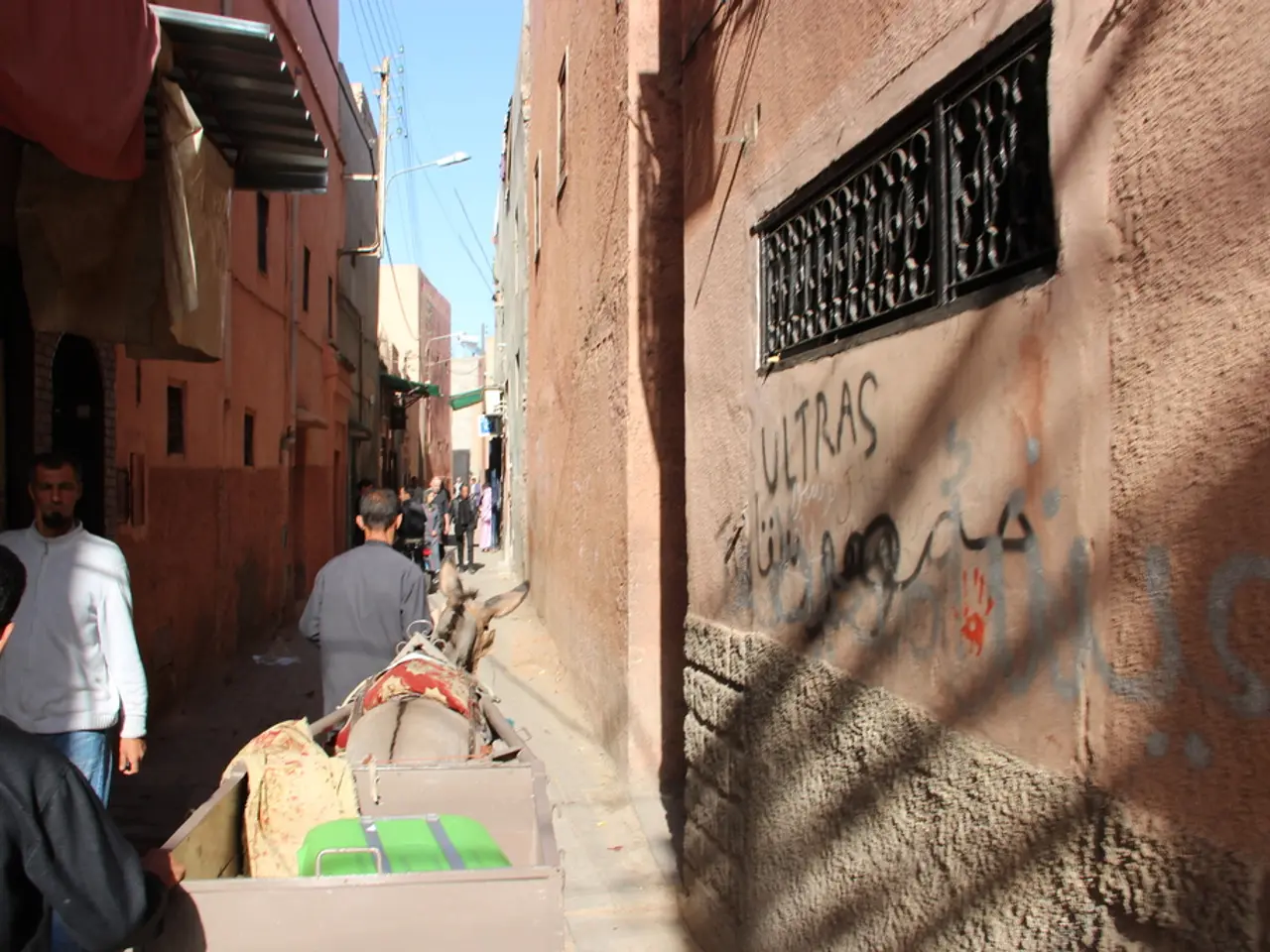Analysis: Examining the prospect of establishing a fresh Palestinian state, given the immense obstacles involved, is it realistic?
The recent moves by four G20 members - Australia, the United Kingdom, Canada, and France - to recognise a Palestinian state have sparked debate and raised hopes for a long-awaited solution to the ongoing conflict in the Middle East. However, the formation of a Palestinian state consisting of the West Bank, Gaza Strip, and East Jerusalem remains a complex and elusive goal due to a series of unresolved political issues.
The Israeli government, in particular, has reacted with fury to these moves, with Prime Minister Benjamin Netanyahu calling the decision to recognise Palestine "shameful." The Israeli government's stance against a two-state solution may complicate efforts to achieve the formation of a Palestinian state.
Before a Palestinian state becomes a reality, several critical political issues must be addressed. One of the most pressing is governance and leadership unity, as the fragmented Palestinian leadership, split mainly between the Palestinian Authority (PA) in the West Bank and Hamas in Gaza, poses a major obstacle. Consensus or power-sharing is essential because Hamas’ control over Gaza and its classification by some as a terrorist entity complicate negotiations and governance legitimacy.
Security and terrorism concerns are also significant. The removal of Hamas from Gaza’s governance and the release of hostages held by Hamas are considered prerequisites by some international actors before endorsing statehood, reflecting security concerns that must be addressed to build trust and stability.
Territorial and settlement issues also loom large. Ongoing Israeli settlement expansion, particularly in the West Bank and East Jerusalem areas like the E1 settlement plan, fractures Palestinian territory and threatens the territorial continuity and viability of a future state. This is seen as a direct challenge to Palestinian sovereignty claims and a major stumbling block in negotiations.
Recognition based on international criteria and negotiated settlements is another key issue. Some governments argue that recognition of a Palestinian state should come only after clear fulfillment of established international criteria for statehood and preferably following a negotiated peace agreement with Israel, rather than as a political gesture that might reward violence or deepen division.
The Palestinian Authority also faces challenges in terms of institutional capacity and corruption. The PA suffers from systemic corruption, limited administrative capacity, and dependence on external aid, which undermines its credibility among Palestinians and hinders effective governance and state-building.
Economic and humanitarian challenges are also significant. The Palestinian economy is heavily dependent on aid and restricted by movement and trade limitations. Gaza’s humanitarian crisis, with damaged infrastructure and widespread displacement, presents a daunting reconstruction and development challenge necessary for a functioning state.
The potential implications of recognising Palestinian statehood while these obstacles remain unresolved are significant. Premature recognition might reduce the motivation for Palestinian leadership to compromise or negotiate directly with Israel, potentially entrenching divisions rather than fostering peace. Recognition by some countries without corresponding changes on the ground could render a state largely ceremonial, lacking real sovereignty or governance capacity. Countries recognising a Palestinian state prematurely may risk isolation from allies like the US, complicating international diplomacy. It could also provoke stronger Israeli hardline measures, including accelerated settlement expansions and political moves against Palestinian statehood efforts. Without resolution of security issues and territorial disputes, recognition might exacerbate tensions, including increased settler violence, evictions, and military actions, thereby destabilizing the region further.
In sum, the complex interplay of leadership division, security concerns, settlement activity, governance challenges, and economic hardship must be addressed for a viable Palestinian state to emerge. Recognition in the absence of resolving these issues risks reinforcing stalemate, undermining peace prospects, and creating a largely symbolic state without effective sovereignty. The recognition of a Palestinian state by G20 members may not resolve the underlying tensions and conflicts that have prevented the formation of a Palestinian state in the past, and it does not guarantee the immediate formation of a Palestinian state. The situation on the ground in Gaza will not be immediately impacted by Australia's recognition of a Palestinian state. Despite these challenges, recognising a Palestinian state is symbolic, signaling a growing global consensus behind the rights of Palestinians to have their own state.
[1] "Palestinian Statehood: Challenges and Implications." Council on Foreign Relations. https://www.cfr.org/backgrounder/palestinian-statehood-challenges-and-implications
[2] "Palestinian Statehood: Roadmap to Statehood?" Chatham House. https://www.chathamhouse.org/sites/default/files/publications/2018-10-palestinian-statehood-roadmap-to-statehood.pdf
[3] "The Palestinian Question: A History of Struggle and Resistance." Middle East Monitor. https://www.middleeastmonitor.com/20180219-the-palestinian-question-a-history-of-struggle-and-resistance/
[4] "The Palestinian-Israeli Conflict: A Brief Overview." United Nations. https://www.un.org/unispal/document/auto-insert-1864/
- The commentary on the recognition of a Palestinian state by G20 members, such as the one presented in "Palestinian Statehood: Challenges and Implications" by the Council on Foreign Relations, often highlights the complex policy-and-legislation environment surrounding this issue, particularly in relation to ongoing political disputes and conflicts.
- The ongoing debate regarding the formation of a Palestinian state is deeply rooted in the realm of politics, as noted in "The Palestinian Question: A History of Struggle and Resistance" from Middle East Monitor, and it extends to discussions on general-news platforms about the unresolved issues of governance, security, territorial disputes, and economic hardships that must be addressed for a viable Palestinian state to emerge.




